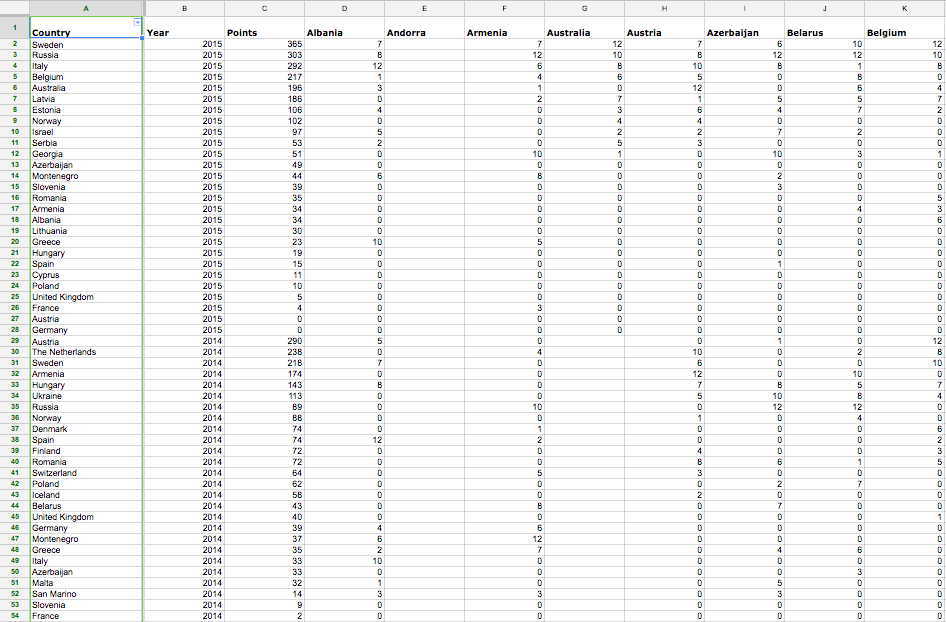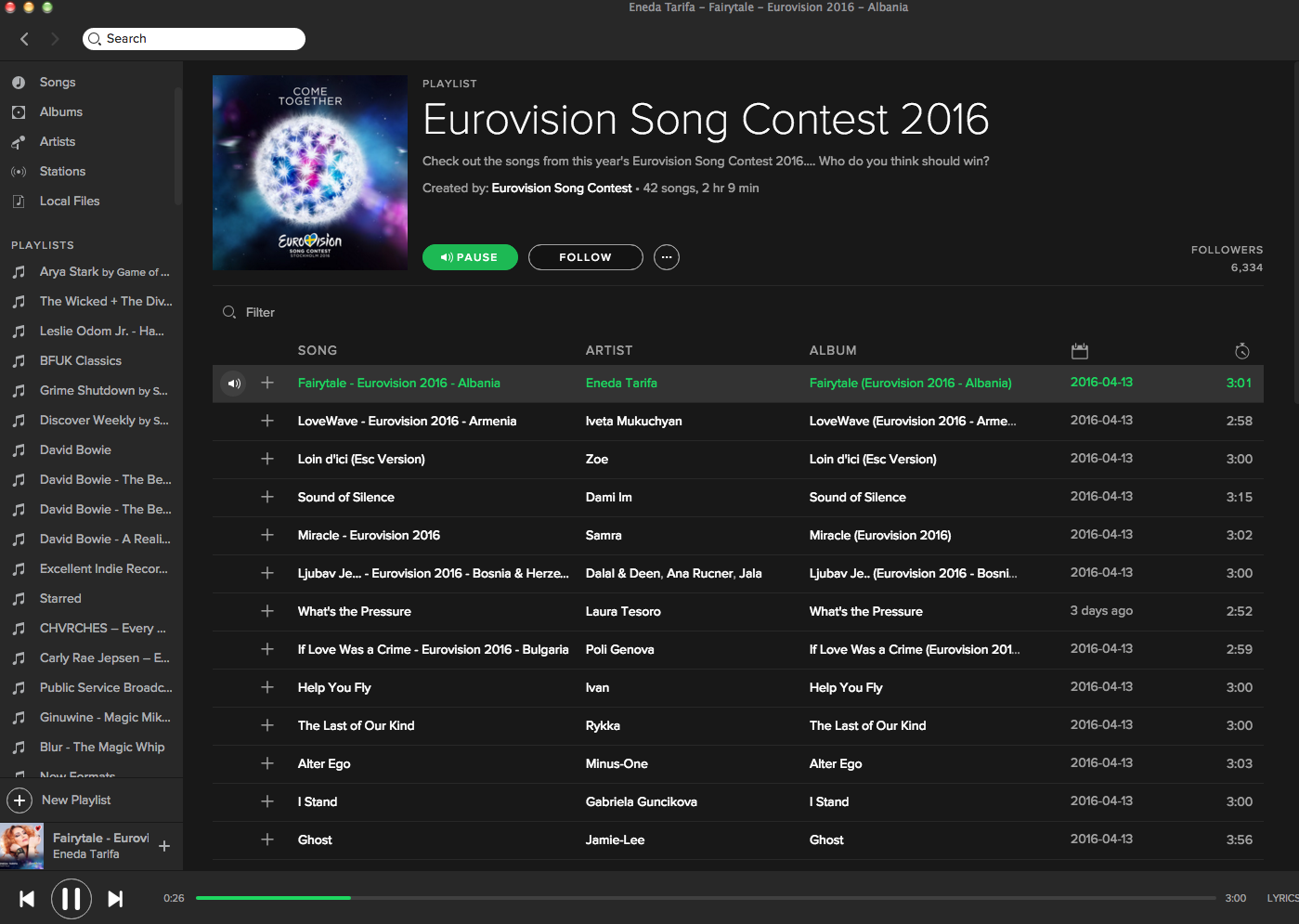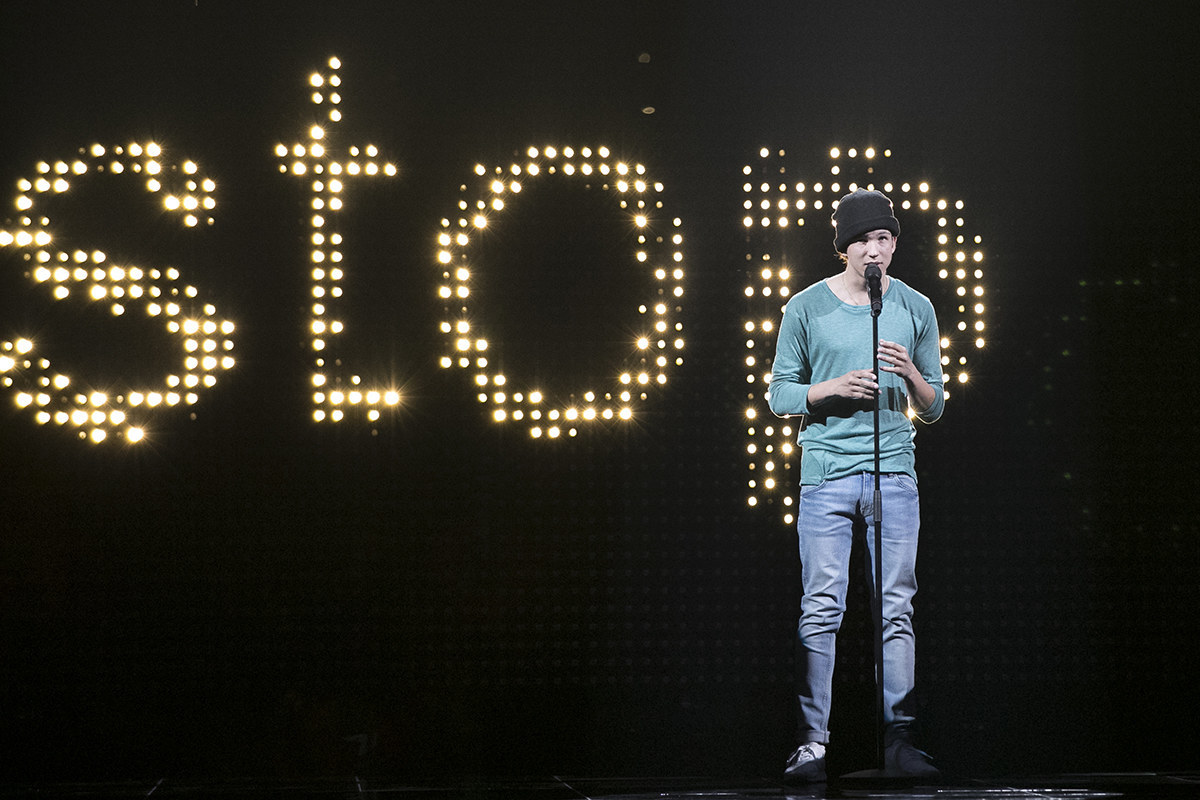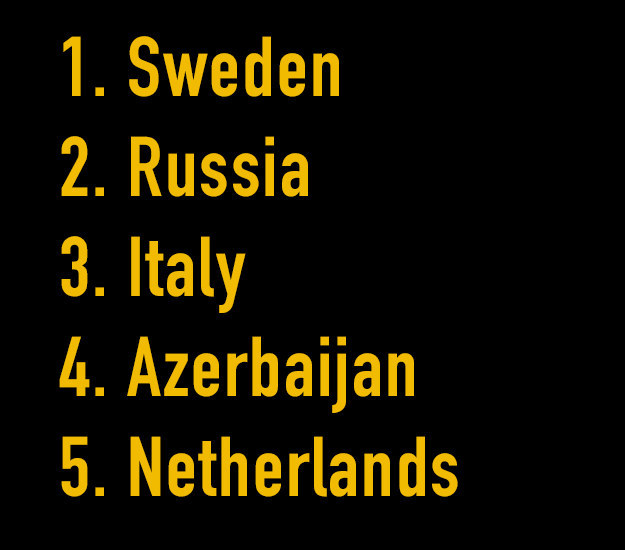Eurovision is everyone's favourite attempt to express centuries of European geopolitical infighting through the medium of camp music.

But as such, it's kind of hard to predict who's going to win, because the history of rivalries, alliances, and cultural affinities among the countries of Europe is insanely complicated, and because music is an elemental force that cannot be tamed.
This is not going to stop us trying.
If you want to try to predict Eurovision, first you have to answer the eternal question: Are voting blocs a real thing, and how much do they screw things up for countries that aren't in them?

People – specifically people in the UK – like to moan every time Eurovision comes around that there is a massive voting bloc of former Soviet states.
The theory goes that this means the Russian entry (this year it's Sergey Larazev, pictured above flying through space on a tiny iceberg) will always have a natural advantage against western European countries, which have no voting bloc. Well, except for the Nordic countries, who always vote for each other.
But...is that true?
Let's do maths at it!
First, we'll need a big-ass spreadsheet of how every country has voted every year for the past 18 years.

This is a tiny bit of that big-ass spreadsheet. Which lets us do this...
This is an ~interactive chart~ of how every country has voted in Eurovision, on average, since the start of phone voting in 1998.
Down the left, the list of countries tells you who they award points to. Across the top, it tells you who gives them points. You can click on any country's name to rearrange the chart by who that country most consistently votes for (on the left), or who votes for them (along the top).
The two key things we're looking at here? Firstly, how dark the squares are – the darker the square, the higher the average number of points one country gives to the other.
And secondly, we want to see how they group. Because it turns out that there are voting blocs...but they might not line up how you expect.
It seems there are basically three voting blocs, in which countries generally reciprocate the points they award each other. There are two small ones, and one really big one.
The smaller two are a group of southeastern European and former Soviet states (plus, weirdly, Spain) and another group that largely centers around the former Yugoslavia.
But then there's the really big bloc, the green one in the middle, which nobody ever really notices is a bloc because basically it's almost everybody in western and northern Europe.
There are undoubtedly some more powerful microblocs within that bloc (the Nordic countries definitely vote for each other a LOT), but it doesn't overwhelm the general blockiness of this huge main bloc.
But what does this meeeaaaan? Well, that if you want to predict the results of Eurovision, past performance is a pretty good place to start, because some voting patterns are pretty consistent!

So here's what we're going to do.
A fairly easy way to account for how many points each country can expect to get, on average, is simply to look at how they did in the last few years. There are a couple of countries who bounce around all over the place – getting high scores one year then crashing out in the semis the next (shoutout to the Netherlands) – but lots of countries are really quite consistent.
So the first thing we do to predict the result is take the last five years' scores and make a weighted average of them. This means we're going to give more importance to last year's results than to five years ago – this takes a little bit of momentum into account. If you did great in 2011 but rubbish last year, you'll do worse on our metric then if you did the opposite.
This system (which, remember, ignores the actual songs entirely) gives us the following top five:
1. Sweden
2. Russia
3. Italy
4. Azerbaijan
5. Ukraine
BUT WAIT. This is clearly a bit of a rubbish method of predicting the result, because it doesn't take into account, you know, whether the song is any good.

This is particularly important when you consider that some countries tend to blow hot and cold on the quality of their songs – doing really well when they enter a decent tune, and other years not really trying. Hi, the Netherlands, hi.
Helpfully, all the Eurovision songs are on Spotify – and Spotify kindly gave us data on which tracks are most popular this year.

Importantly, their ranking excludes listens from the artists' own country – because obviously you can't vote for yourself in Eurovision. So this data shows us which tracks are popular across Europe, not just at home.
It's still not perfect data, of course, because there are more Spotify users in western Europe than eastern Europe and Russia, which might introduce a bit of bias into the listings. But it's still a pretty neat sign of popularity of the songs, which given there's a phone vote for the Eurovision is going to be Important.
Here's the Spotify top five:
1. Sweden
2. France
3. Russia
4. Spain
5. Australia
(You've got to admit, it's not too hard to spot a trend here, is it?)
So WHO DO WE THINK IS GONNA WIN?

It's Sweden, of course. They are on the top of both the lists. There is no magic algorithm (except a really dumb magic algorithm) that isn't going to put Sweden on the top of the list. They won last year, they won in 2012, they consistently get high scores, and their song this year blows every other track out of the water in terms of Spotify listens – "more than any song by the Beatles", according to a Spotify spokesman.
BUT: Who else are the likely contenders? We're glad we pretended you asked. We now have two different ways of picking a winner: one based entirely on previous scoring, and another based entirely on song popularity. All we need to do now is weld them together.
That means we have to decide how much weight to put on each measure – do we think song quality is more important, or geopolitical voting blocs? To pick this weighting, we did extensive surveying, statistically modelling, and consulted numerous experts. Then we decided that was too hard, and arbitrarily decided to go with 60/40 in favour of the voting blocs system.
This gives us our highly-scientific-and-thus-definitely-100%-infallible Eurovision top five:
*drumroll*

Oh, hey the Netherlands!
Anyway, this is definitely going to be the top five. Data says so, you can't argue with it. Thank you, science!
